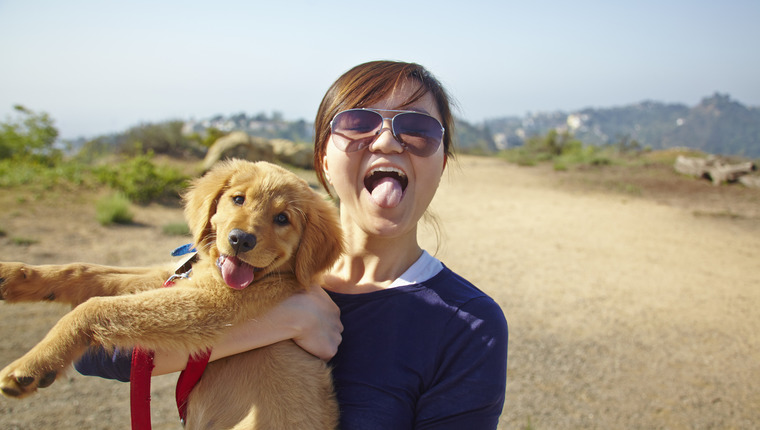
An incredibly adorable new study found that puppies mimic humans more often than both kittens and wolf pups. Amazingly, they’ll even mimic us when we’re not around. Significantly, researchers think this could be a key to a further understanding of social learning in dogs.
The Latest in a Series of Studies
Not surprisingly, the researchers behind the study hail from Eötvös Loránd University in Budapest, Hungary. Previously, some of the university’s research has found that dogs have unique, singular ways to communicate with people. Importantly, the research coming out of Budapest is increasing our understanding of canine cognition by leaps and bounds.
Coincidentally, the lead author of this study is not unfamiliar to Dogtime. Incredibly, we’ve already covered Claudia Fugazza’s previous research involving canine memory and learning. In that study, Fugazza used a training method she developed herself, called Do As I Do (DAID), to demonstrate how dogs form memories. Fascinatingly, Claudia’s research found that dogs have a memory capacity beyond any researcher’s wildest dreams.
Learning Theory and Social Cognition Explains Differences in Dogs, Kittens, and Wolf Pups
According to the study itself, “ The main aim…was to test whether dog puppies, kittens, and wolf pups show a spontaneous tendency” to mimic human behavioral demonstrations. Notably, the puppy subjects lacked any previous training, and researchers didn’t use any food rewards to coax a response.
Throughout the study, researchers found that dog puppies watched their demonstrations more than wolf puppies or kittens. Although both dog and wolf puppies matched the demonstrations more during trials than kittens, dog puppies demonstrated something else. Amazingly, dog puppies would continue to mimic human behaviors even without further rewards or demonstrations.
Concludingly, Fugazza and team said these findings support the theory “ that dog puppies show a tendency to attend to humans and conform their behavior to human demonstrations” without any extrinsic reward. Ideally, the researchers hoped that these findings would prove useful in practical applications. Specifically, developing training methods that rely less on food, and more on “ puppies’ natural predisposition for social learning.”
The study has been published in Nature.









